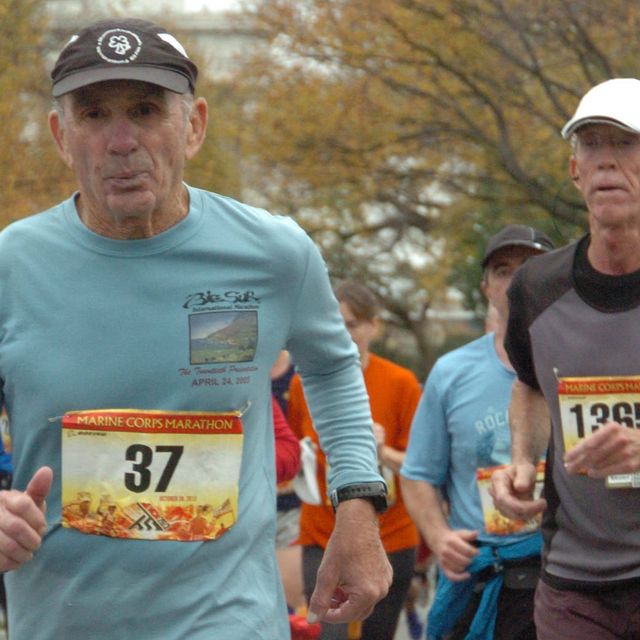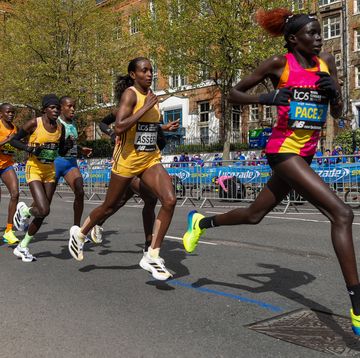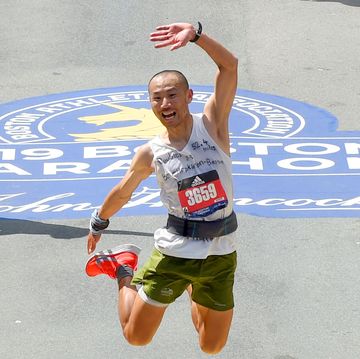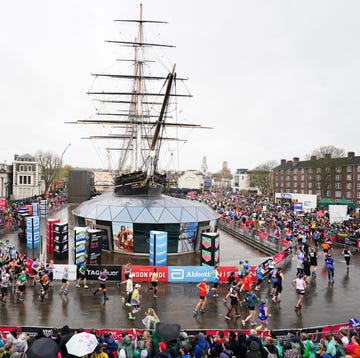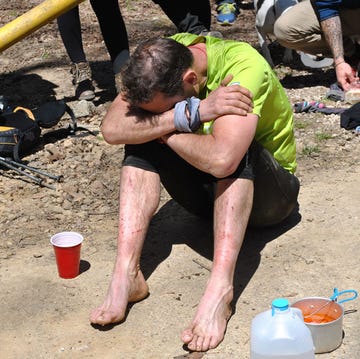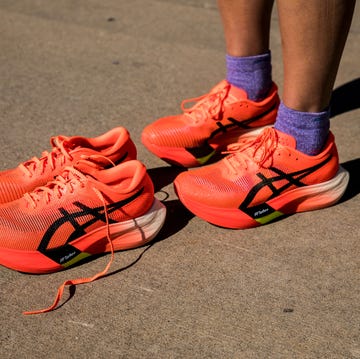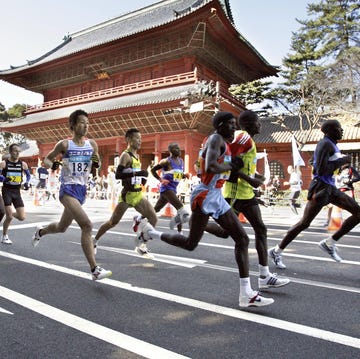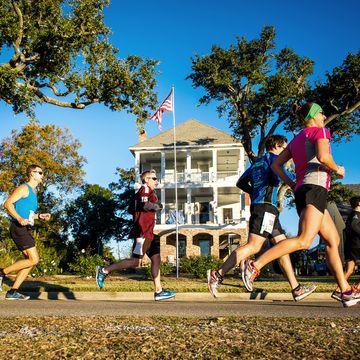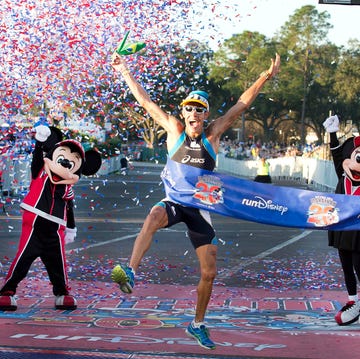Mel Williams, an accomplished marathoner, beloved member of the southeastern Virginia running community, and researcher whose work helped the International Olympic Committee decide to ban blood doping in the 1980s, died from bone cancer on May 18. He was 78.
Williams finished the first 38 Marine Corps Marathons, a streak that ran from 1976 to 2013, and he also helped establish the Tidewater Striders, one of the largest local running clubs in the country. His combination of humility and drive led the running community in southeastern Virginia to affectionately refer to him as “The Legend.”
Growing up in the coal country of Pennsylvania, Williams began running in high school to stay in shape for football and to lose weight as a wrestler. When he joined the Army, serving as a medic and paratrooper, he continued to run as part of his fitness regime. But it wasn’t until the 1970s that he fell in love with distance running.
His interest in athletic performance had already led to a career in academia.
Williams earned a bachelor’s degree from East Stroudsburg University, a master’s degree from Ohio University and a doctorate from the University of Maryland. He went on to spend more than 40 years as a professor and professor emeritus of exercise science at Old Dominion University in Norfolk, Virginia, where he founded the Human Performance Laboratory and the Wellness Institute, and served as the school’s cross-country coach for four years.
Around the same time, he started conducting experiments on how blood transfusions, caffeine, hypnosis, or alcohol could affect an athlete’s performance. In one study, a group of local runners capable finishing a five-mile race in 30–35 minutes—including Williams—improved an average of 45 seconds after they received transfusions of their own blood.
“At the time people were writing a lot of articles about ‘runner’s high,’” Williams told Amby Burfoot, writer-at-large for Runner’s World in 2013. “I’m telling you, that run was the highest I have ever felt. I was just floating down the road.”
Williams’s research was later used as part of the International Olympic Committee’s 1985 decision to ban blood doping.
Throughout his academic career, Williams wrote more than 10 books on nutrition and fitness, founded the International Journal of Sports Nutrition and Exercise Metabolism, and served on the board of the American College of Sports Medicine.
But Williams rarely discussed these accomplishments among local runners.
In southeastern Virginia, he was known for never talking about his own races or personal records but always asking about others’.
Angelo Celesia, 67, ran with Williams for more than 10 years in Virginia Beach parks and said other runners were drawn to Williams.
In 2007, after surgery and cancer treatment, Celesia said he couldn’t stick with his normal pace group during his first run back. Williams dropped back, ran with him the rest of the workout and encouraged him to do the San Francisco Marathon just a few months later.
Celesia was skeptical, if not dumbfounded. He could barely finish a training run, how could be get in shape for a marathon?
“Just follow me,” Williams told him.
It was Celesia’s only marathon plan: Follow Williams. Celesia remembered that months later, a few miles into the race, Williams told him, “You got this,” and Celesia went on to finish in 3:36.
“He always made you feel like your achievements were the most important thing,” he said.
Williams himself ran more than 1,000 races and 125 marathons. He won his age group three times at the Boston Marathon.
He also finished the Marine Corps Marathon 38 times and until 2014 was known as a “Groundpounder,” the name given to members of the exclusive club of runners who have finished every edition of the race. He was inducted into the race’s Hall of Fame in 2001. For years he taught a course at ODU in marathoning—possibly the first in the country—in which students’ final project was to run the Marine Corps Marathon. None ever beat him. His best time at the race was a 2:34.
“No one better represented Marine Corps values of honor, courage and commitment than Mel Williams,” organizers of the Marine Corps Marathon posted to the race’s Facebook page. “While the MCM community mourns the loss of the beloved Groundpounder, we salute him for a life well run.”
Williams also helped shape the direction for the Tidewater Striders and served on the board or committees in parts of five decades. In recent years, he served as the race director for the organization’s first 50K in 2009 as ultramarathoning was growing in popularity. Since then, the race has sold out every year.
Organizers with the Tidewater Striders said the Elizabeth River Run, a popular 10K race through Portsmouth, Virginia, will be run in Williams’s honor on May 28. More than two dozen runners will wear matching T-shirts imprinted with one of The Legend’s favorite phrases.
“Life is like sport,” the shirt reads. “Be all that you can be.”
